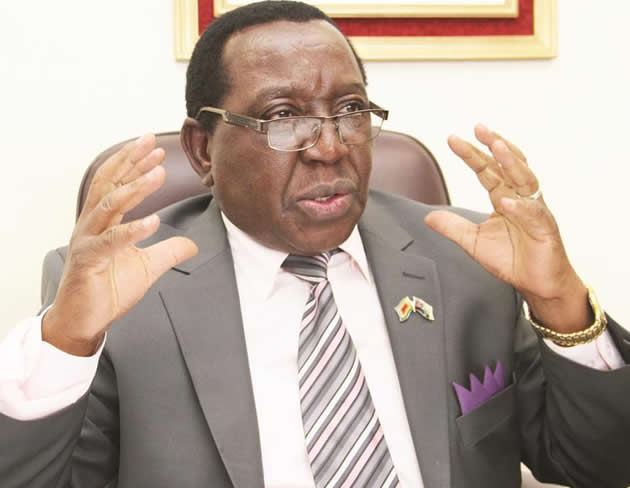
THE government is in talks over establishment of anti-corruption courts in an effort to speed up convictions amid revelations that there were over 300 newly reported corruption cases involving high profile government officials.
By Nokuthaba Dlamini
Zanu PF spokesperson Simon Khaya Moyo revealed this yesterday while addressing delegates at the ongoing ninth anti-corruption conference in Victoria Falls. He said many cases had been taken to court, even though there has not been a single conviction made, hence, the need for anti-corruption courts. “High profile cases are being referred to the courts since the new government took charge. The courts are now seized with hearing various corruption cases. This number of reported cases has never been reached before,” he said.
“Furthermore, a number of public officers have been suspended. Such has been the influx of corruption cases to the extent that government has mooted the idea of forming special courts to deal with corruption matters.”
Chief Justice Luke Malaba in January said the Judicial Service Commission was planning to establish anti-corruption courts to deal with and curb the scourge of graft.
Moyo said that the whistleblowers needed to present their cases with compelling forensic evidence as many accused walked freely due to lack of overwhelming evidence.
“The fight begins with you dealing with corruption by preventing, detecting and reporting it and more importantly providing concrete evidence in courts,” he said.
Zimbabwe Anti-Corruption Commission (Zacc) deputy chairperson Nanette Silukhuni echoed the same sentiments, revealing that one of their first mop exercises was conducted in health institutions.
- Chamisa under fire over US$120K donation
- Mavhunga puts DeMbare into Chibuku quarterfinals
- Pension funds bet on Cabora Bassa oilfields
- Councils defy govt fire tender directive
Keep Reading
“At the moment, no single conviction had been made, but I am happy to announce that we have been able to penetrate the health sector. We identified loopholes and areas breeding corruption. For instance, there was a certain ‘fee’ that needed to be paid for one to qualify to train as a nurse.
“There is high appetite for specialised criminal courts to preside on corruption that way it will be much quicker and faster turnaround as we have recently received more than 300 cases of high profile people compared to the previous years.”
The conference, ending today, is running under the theme Fighting Corruption for Economic Recovery and Good Corporate Governance for New Government.











